-
Slideshow "Our hands of salt" part 2 - poetry by Philippe Garon.
-
The photos displayed on the flakes - the industry:
-
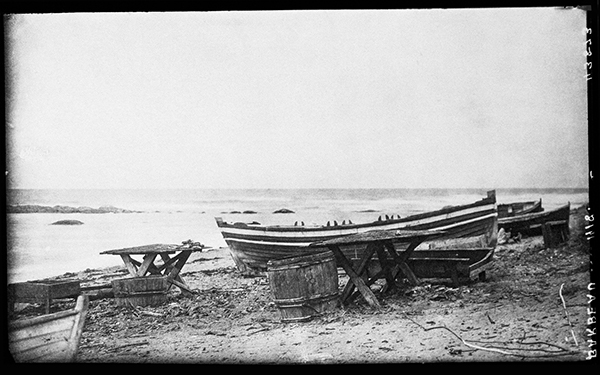
Bateaux de pêche et tables utilisées pour découper le poisson à Tourelle, 1918, MCH, 43873.
-
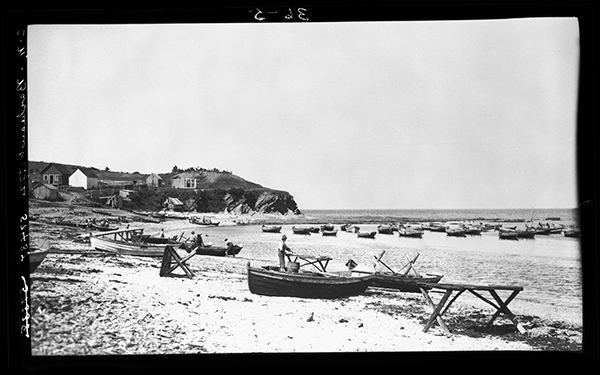
Bateaux et pêcheurs à Rivière-au-Renard, Gaspésie, 1922, MCH, 57437.
-
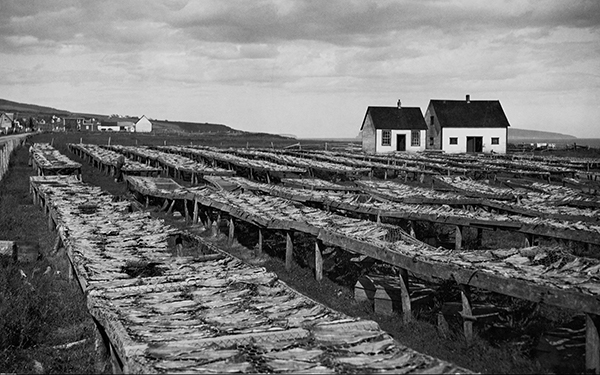
Morue séchant sur les vigneaux à l’Anse-à-Beaufils, LAC-BAC, eo11198214.
-
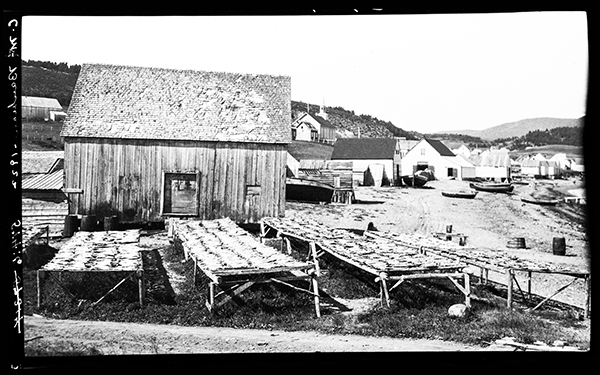
Morues séchant sur des étagères à Rivière-au-Renard, Gaspésie, 1922, MCH, 57416.
-
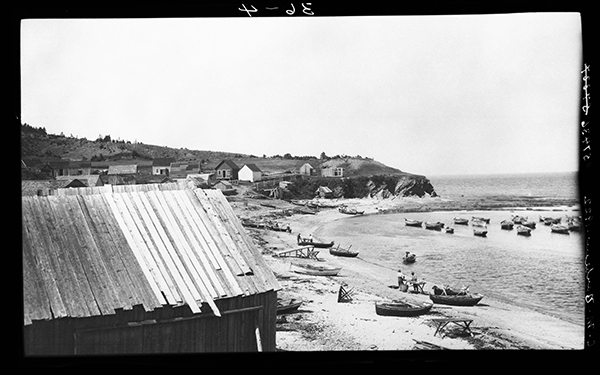
Bateaux et pêcheurs à Rivière-au-Renard, Gaspésie, 1922, MCH, 57436.
-
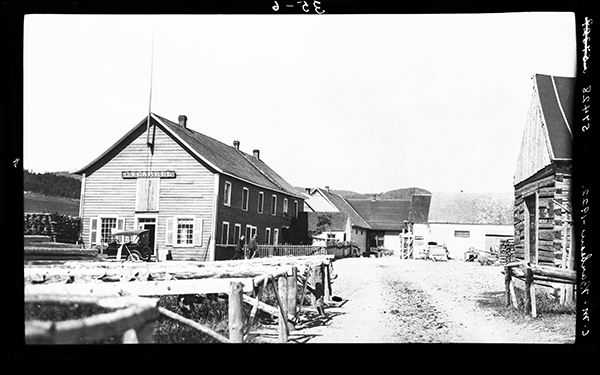
Magasin et hôtel, dans la région de la Gaspésie, 1922, MCH, 57428.
-
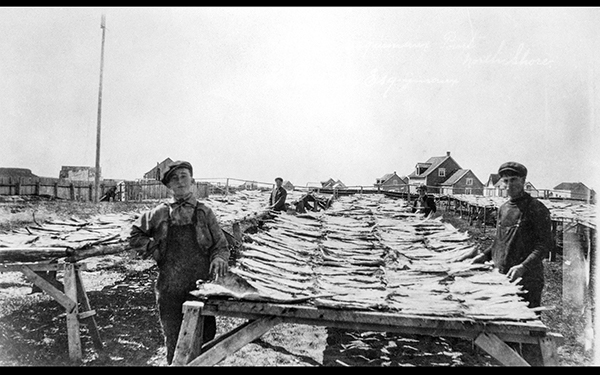
Séchage de la morue à la Pointe-Escuminac, LAC-BAC, PA-048220.
-
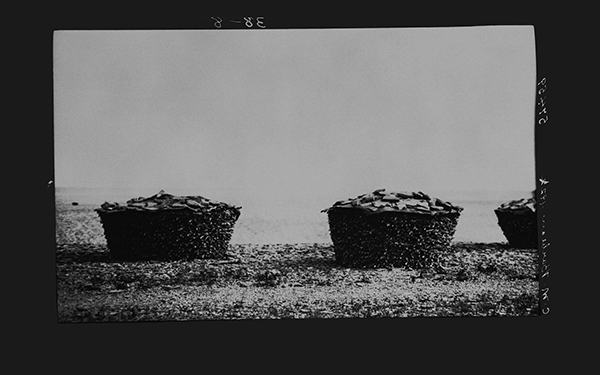
Javelles de morues séchées sur la plage à Grand Étang,1922, MCH, 57459.
-
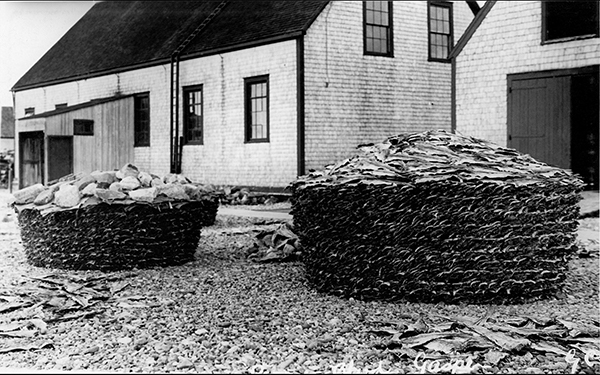
Morue superposée en rond, LAC-BAC, eo11198211.
-
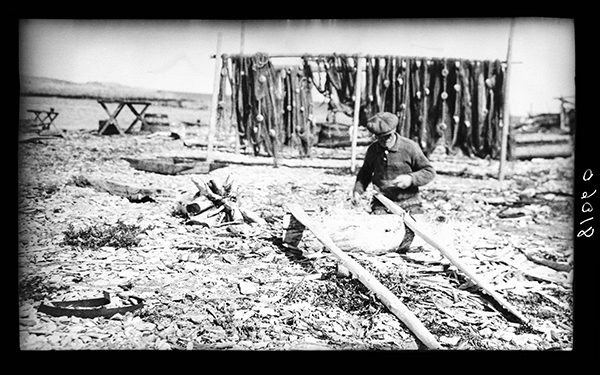
Joseph Martel fabriquant des avirons en bois d'épinette, 1936, MCH, 81060.
-
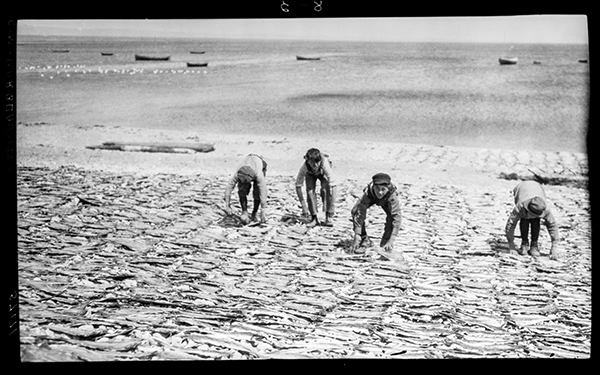
Garçons tournant des morues séchant sur la plage à Percé, Gaspésie, 1922, MCH, 57171.
-
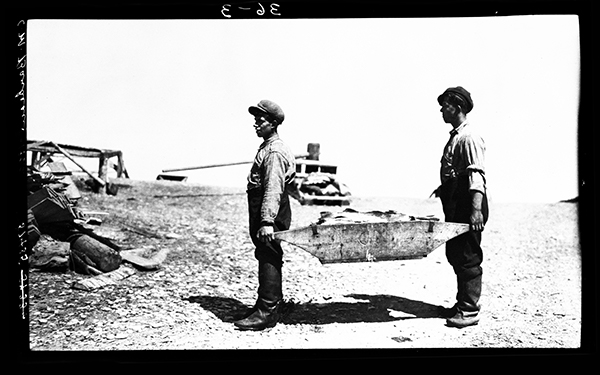
Pêcheurs transportant des chargements de poisson à Rivière-au-Renard, Gaspésie, 1922, MCH, 57435.
-
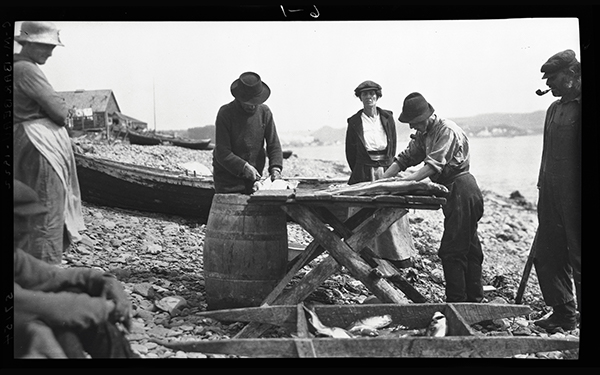
Pêcheurs coupant des morues au bord de l'eau à Port-Daniel, Gaspésie, 1922, MCH, 57154
-
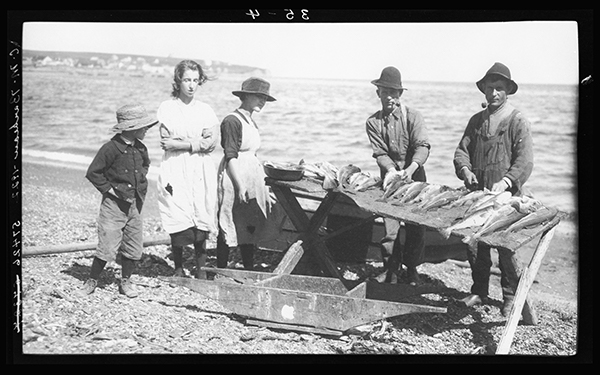
Pêcheurs coupant des morues en Gaspésie, 1922, MCH, 57426.
-
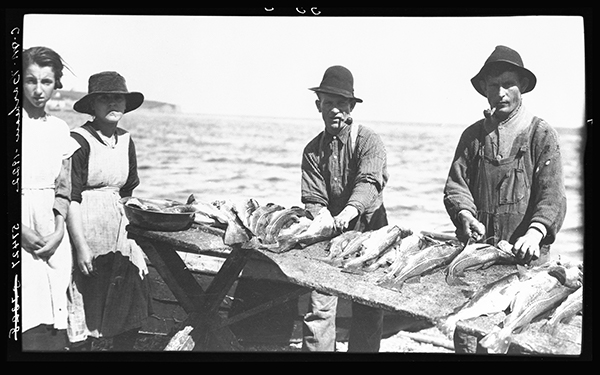
Pêcheurs coupant des morues au bord de l'eau à Port-Daniel, Gaspésie, 1922, MCH, 57427.
-
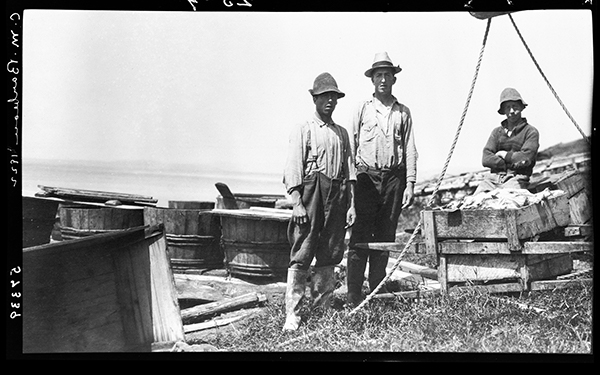
Trois hommes halant des poissons à partir du rivage à Indian Cove, Gaspésie, 1922, MCH, 57339.
-
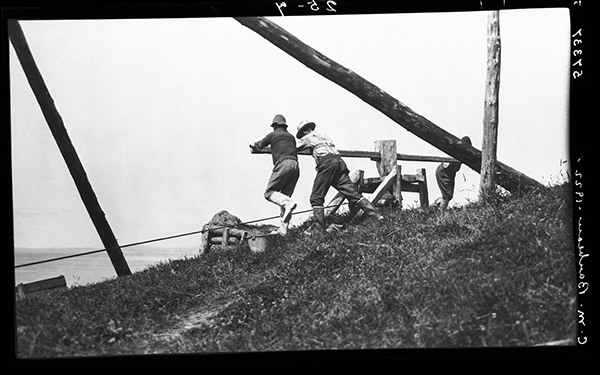
Trois hommes halant des poissons à partir du rivage à Indian Cove, Gaspésie, 1922, MCH, 57337.
-
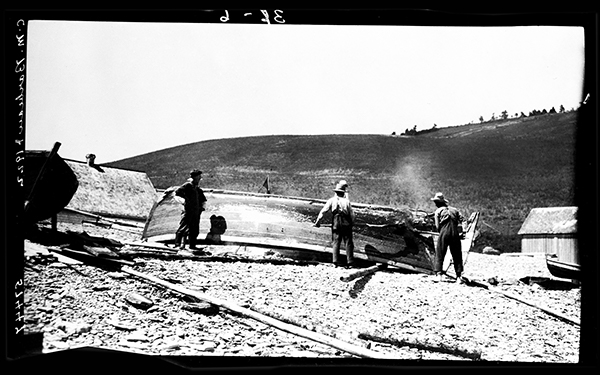
Pêcheurs goudronnant un bateau de pêche à Petite-Rivière-au-Renard en Gaspésie, 1922, MCH,57447.
-
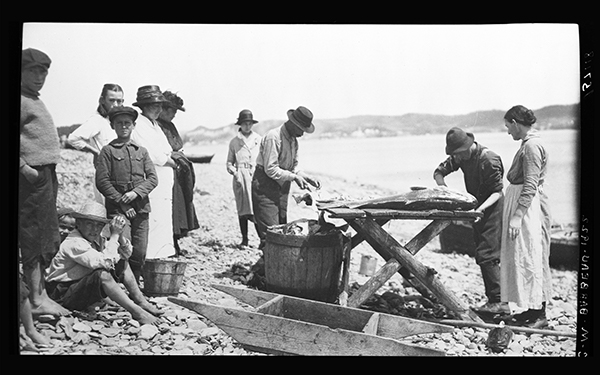
Pêcheur coupant des morceaux d'une grande morue à Port-Daniel, Gaspésie, 1922, MCH, 57118.
-
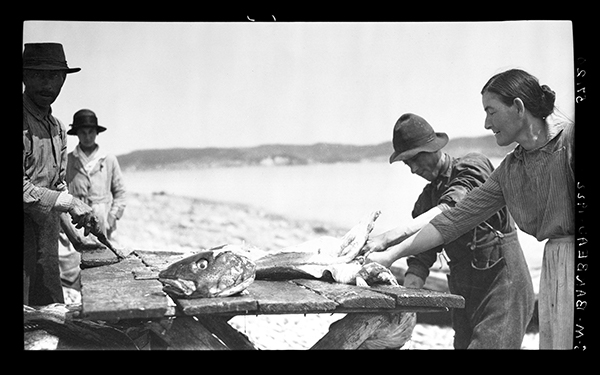
Pêcheurs coupant des morues au bord de l'eau à Port-Daniel, Gaspésie, 1922, MCH, 57120
-
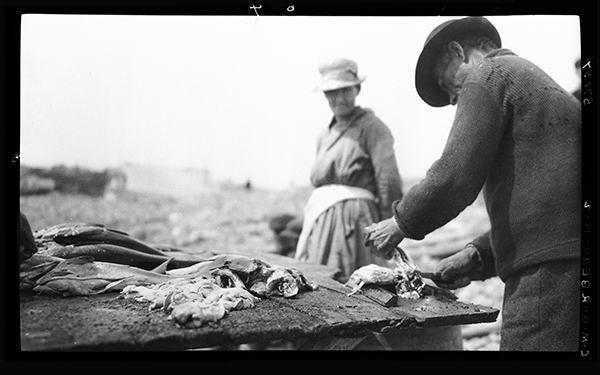
Pêcheur coupant des morceaux de morue à Port-Daniel, Gaspésie, 1922, MCH, 57157.
-
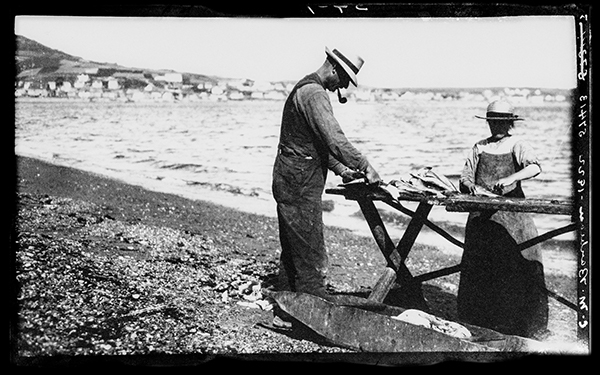
Pêcheur et sa femme découpant des morues à Rivière-au-Renard, 1922 MCH, 57413.
-
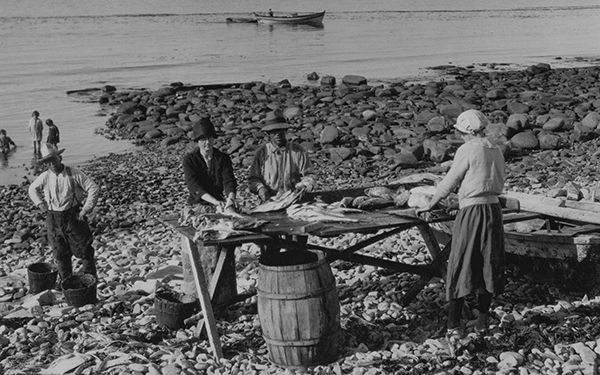
Femmes et hommes nettoyant la morue, LAC-BAC, eo11198212.
-
The photos displayed on the drying racks - the arrival:
-
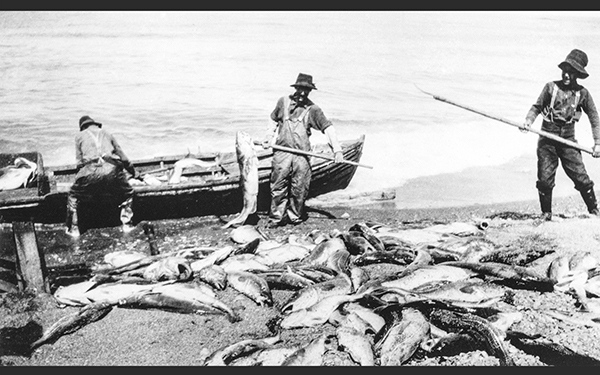
Déchargeant la morue d’un petit bateaux, LAC-BAC, PA-048221.
-
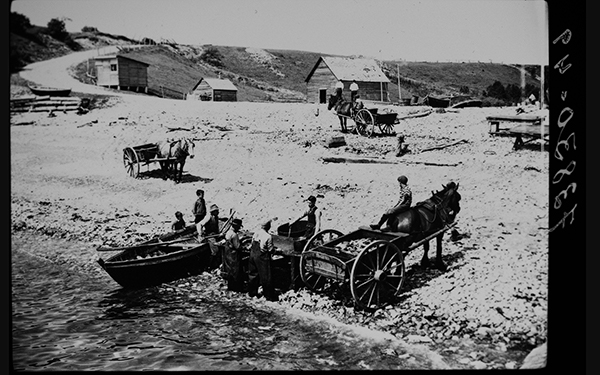
Déchargeant la morue du bateau à la charrette sur la grève, SHBP.
-
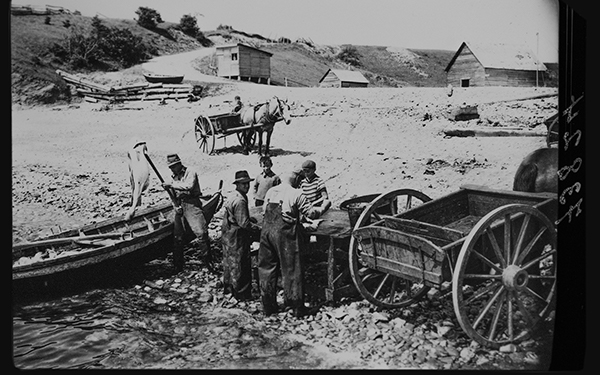
Déchargeant la morue du bateau à la charrette sur la grève, SHBP.
-
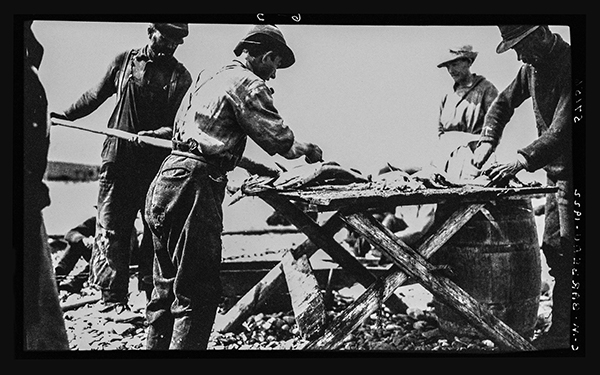
Hommes faisant le découpage de morues à Port-Daniel, 1922, MCH, 57156.
-
The photos displayed on the drying racks - the shore:
-
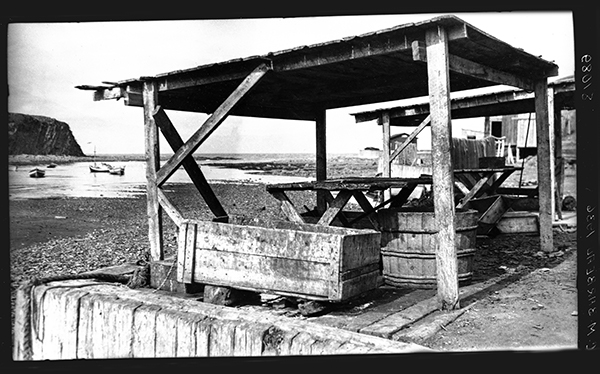
Tables et étalages en bois pour la morue, 1936, MCH, 81089.
-
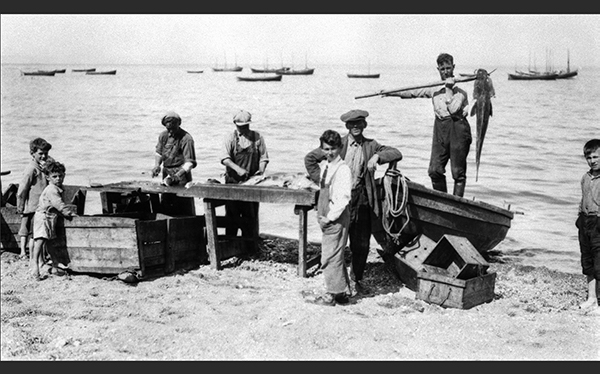
Nettoyage de la morue sur la grève avec jeunes garçons observant, LAC-BAC, PA-044048.
-
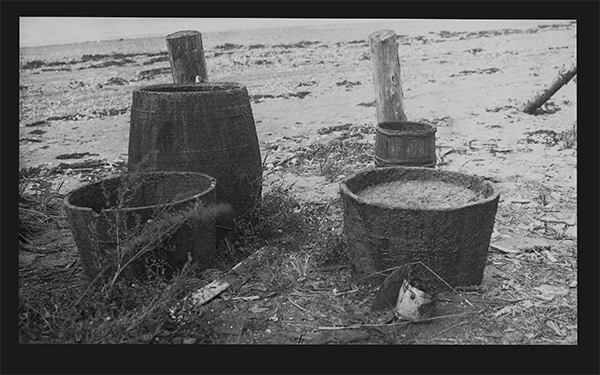
Fabrication de l'huile de foie de morue dans des cuves, 1918, MCH, 43884.